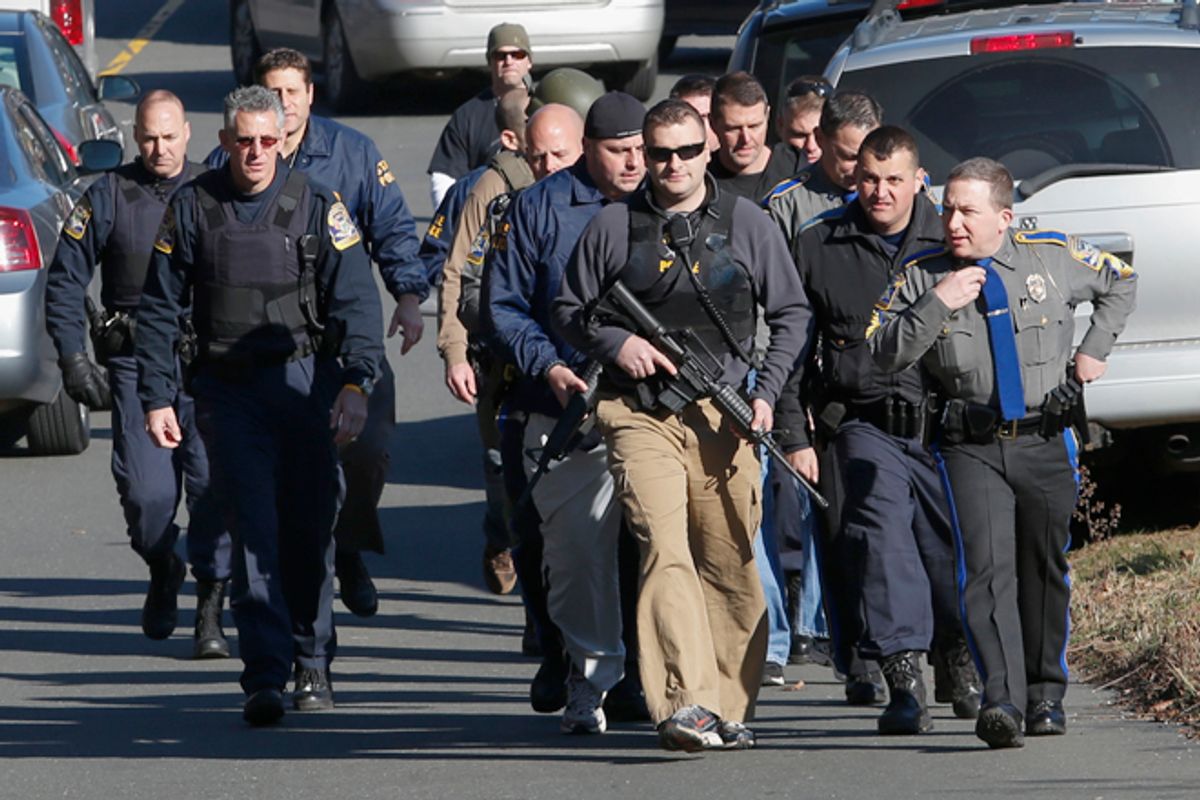As the families of the 20 children and 6 adults killed at Sandy Hook Elementary mourn, and the debate over gun control rages on, the first responders of Newtown are also struggling in the aftermath of one of the worst school massacres in our nation's history.
Seven police officers spoke with Ray Rivera of the New York Times to share a heartbreaking and sobering account of that fateful day, and the reality of post-traumatic stress disorder for those who witness horrific violence in the line of duty.
“One look, and your life was absolutely changed,” Michael McGowan, one of the first to arrive at the school, told the Times.
As the officers recount the gruesome details of December 14, they also paint a picture of tremendous bravery, of young officers -- also fathers -- using their most soothing daddy voice to coax traumatized children out of their classrooms and standing to form a human curtain around the bodies of Dawn Hochsprung, the principal, and Mary Sherlach, the school psychologist, to shield them from the children's view.
After evacuating the survivors to safety, the long process of recovery began. For the children, teachers and the officers themselves.
As officer Tom Bean told the Times, after he left the building that day, he paused to call his wife in the parking lot. “That’s when I broke down in tears, crying,” he said. More than a month later, the officers continue to have flashbacks, some struggling just to do their jobs and resume their daily lives:
One detective, who was driving with his wife and two sons, passed a roadside memorial on Route 25 two weeks after the shooting, and began sobbing uncontrollably. “I just lost it right there, I couldn’t even drive,” the detective, Jason Frank, said.
One officer, unable to return to work and needing medication to sleep, has received a diagnosis of post-traumatic stress disorder.
Nationwide, it's estimated as many as 18 percent of police are suffering from PTSD, but it remains a stigmatized diagnosis with very few resources available for police officers. In fact, post-traumatic stress disorder was not covered by worker's compensation under Newtown's statute at the time of the shooting, leaving many officers without sufficient support.
Local officials, state legislators and the governor’s office are currently working to change the law to provide for emotional trauma benefits and allow police officers to take more time to recover.
Detective Jason Frank spent days collecting evidence at the school turned crime scene, and the images continue to haunt him. Not just of the children, as the Times reports, but of "the monster-truck backpack he found that was identical to his 6-year-old’s. The Christmas ornaments that sat unfinished, drying on the windowsill."
“It’s heartbreaking,” he said. “These kids will never take those ornaments home to their parents.”



Shares